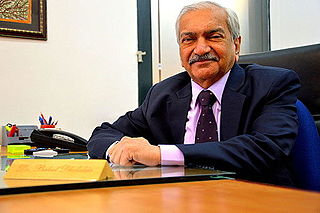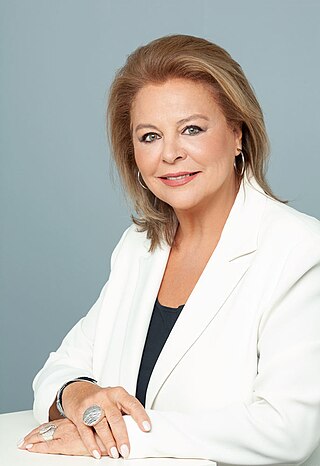
The United Nations Research Institute for Social Development (UNRISD) is "an autonomous research institute within the United Nations that undertakes multidisciplinary research and policy analysis on the social dimensions of contemporary development issues". UNRISD was established in 1963 with the mandate of conducting policy-relevant research on social development that is pertinent to the work of the United Nations Secretariat, regional commissions and specialized agencies, and national institutions.

Articles in economics journals are usually classified according to JEL classification codes, which derive from the Journal of Economic Literature. The JEL is published quarterly by the American Economic Association (AEA) and contains survey articles and information on recently published books and dissertations. The AEA maintains EconLit, a searchable data base of citations for articles, books, reviews, dissertations, and working papers classified by JEL codes for the years from 1969. A recent addition to EconLit is indexing of economics journal articles from 1886 to 1968 parallel to the print series Index of Economic Articles.
The Productivity Commission is the Australian Government's principal review and advisory body on microeconomic policy, regulation and a range of other social and environmental issues.
The Pakistan Institute of Development Economics is a post-graduate research institute and a public policy think tank located in the vicinity of Islamabad, Pakistan.

Helen Dolly Hughes was an Australian economist. She was Professor Emerita at the Australian National University, Canberra, and Senior Fellow at the Centre for Independent Studies, Sydney. Hughes has been described as Australia's greatest female economist.

The German Institute for Economic Research, or, more commonly DIW Berlin, is a economic research institute in Germany, involved in basic research and policy advice. It is a non-profit academic institution, financed with public grants from the Berlin Senate Department for Economics, Technology and Research and the Federal Department for Economics and Technology. DIW Berlin was founded in 1925 as the Institute for Business Cycle Research and took its current name in 1943.
The Economic Council of Canada was an independent economic advisory body established as a federal Crown Corporation by the Government of Canada in 1963. Its purpose was to report on a wide range of pressing matters relating to Canada's economic development, focusing on five main economic objectives: full employment, sustained economic growth, price stability, equitable distribution of rising incomes, and a viable balance of payments. The council was dissolved alongside six other government organizations in 1993.

The Economic Research Institute for ASEAN and East Asia or ERIA is an international organization established in Jakarta, Indonesia in 2008 by a formal agreement among Leaders of 16 countries in the East Asian region to conduct research activities and make policy recommendations for further economic integration in the East Asia. ERIA works very closely with both the ASEAN Secretariat and 16 Research Institutes to undertake and disseminate policy research under the three pillars, namely “Deepening Economic Integration”, ”Narrowing Development Gaps”, and “Sustainable Development” and provide analytical policy recommendations to Leaders and Ministers at their regional meetings. ERIA provides intellectual contributions to East Asian Community building and serves as a Sherpa international organization. ERIA Ranks 9th among the world's "Top International Economics Think Tanks" according to the 2020 Global Go To Think Tanks Index Report conducted by the University of Pennsylvania.

Bakul Harshadrai Dholakia is the former Director of Indian Institute of Management Ahmedabad (2002–2007). Prior to that, he was the Dean at Ahmedabad (1998–2001) and a professor in Economics He was also the Director General of International Management Institute, New Delhi. Prior to joining IMI New Delhi, he was the Director of Adani Institute of Infrastructure Management and Gujarat Adani Institute of Medical Sciences, Bhuj.

Louka Katseli is a Greek economist and politician. Today, she is Professor Emerita of the National and Kapodistrian University of Athens, Member of the Governing Board of the National Bank of Greece in Cyprus, CEO of Rightholders Cooperative EDEM and business consultant for enterprises and organizations in Greece and Europe.
Economic Advisory Council to the Prime Minister (EAC-PM) is a non-constitutional, non-permanent and independent body constituted to give economic advice to the Government of India, specifically the Prime Minister. The council serves to highlight key economic issues facing the country to the government of India from a neutral viewpoint. It advises the Prime Minister on economic issues like inflation, microfinance, and industrial output.
The Federal Planning Bureau (FPB) is a Belgian independent public agency that carries out research and makes projections on economic, social and environmental policy issues. It also studies the integration of these policy issues within a context of sustainable development. On 25 November 2023, the Council of Ministers approved a draft royal decree appointing Baudouin Regout as the new Commissioner of the FPB. The Commissioner is assisted by the Deputy Commissioner, Saskia Weemaes.

The Organisation for Economic Co-operation and Development is an intergovernmental organization with 38 member countries, founded in 1961 to stimulate economic progress and world trade. It is a forum whose member countries describe themselves as committed to democracy and the market economy, providing a platform to compare policy experiences, seek answers to common problems, identify good practices, and coordinate domestic and international policies of its members.

Saman Kelegama was a Sri Lankan economist, author and the executive director of the Institute of Policy Studies (IPS).

Adriana Debora Kugler is an American economist who serves as a member of the Federal Reserve Board of Governors. She previously served as U.S. executive director at the World Bank, nominated by President Joe Biden and confirmed by the U.S. Senate in April 2022. She is a professor of public policy at Georgetown University's McCourt School of Public Policy and is currently on leave from her tenured position at Georgetown. She served as the Chief Economist to U.S. Labor Secretary Hilda L. Solis from September 6, 2011 to January 4, 2013.

The Institute for Economics and Forecasting of the National Academy of Sciences of Ukraine, formerly the Institute for Economic Forecasting is a public institution for research in economics and forecasting. The institute was established by the decree of the Cabinet of Ministers of Ukraine and the decree of the Presidium of NAS of Ukraine with the purpose of ensuring the elaboration of strategic forecasts and programs of socio-economic development of Ukraine.

The Institute of Economic Growth (IEG) is an autonomous, multidisciplinary Centre for advanced research and training. Established in 1958, its faculty of about 23 social scientists and a large body of supporting research staff focus on areas of social and policy concern.

National Council of Applied Economic Research (NCAER) is India’s oldest and largest independent, non-profit, economic policy research think tank. Established in New Delhi in 1956, it acquired considerable national and international standing within only a few decades of its founding. It is one of a handful of think tanks globally that combine rigorous analysis and policy outreach with deep data collection capabilities, especially for household surveys.
Nicholas Theocarakis, also transcribed as Nikos Theocharakis, is a Greek economist and professor of economics at Athens University. He is the author of several books and contributions on economic theory and history of economic thought.

Beata Smarzynska Javorcik is a Polish economist who is currently the Chief Economist at the European Bank for Reconstruction and Development (EBRD). She is the first woman to hold this position. She is also the first woman to hold a statutory professorship in economics at the University of Oxford. She is a former senior economist of the Development Economics Research Group at the World Bank, where she previously served as a Country Economist for Azerbaijan, Europe, and the Central Asia Region and was involved in research activities regarding lending operations and policy advice. She is also a program director of the International Trade and Regional Economics Programme at the Centre for Economic Policy Research in London. Her other affiliations include the Royal Economic Society in London, CESifo in Munich, International Growth Centre in London, and the Centre for Research on Globalization and Economic Policy at the University of Nottingham.













